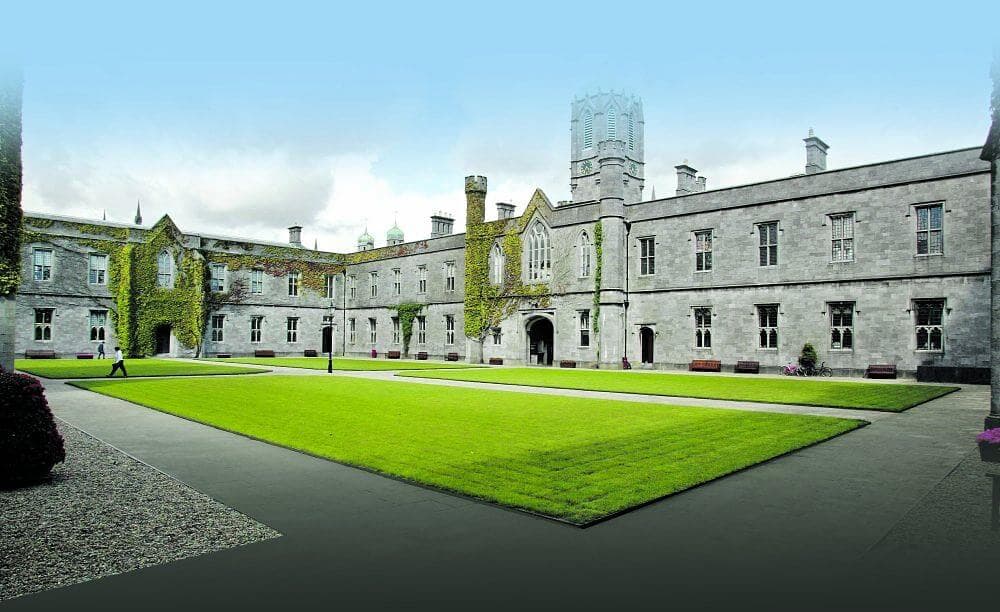The programme structure and student engagement is based on three successive phases, and builds on NUI Galway’s lengthy experience in providing software design and development conversion courses for students from cognate backgrounds such as Physics, Maths, Engineering and Science.
A number of proven teaching and assessment methodologies will be employed, including lectures, tutorials, laboratory workshops, rapid feedback from assignments,and project-based learning. The phases of the programme are: 1. Semester 1—General Studies in Computing, which recognises that participants are largely from non-computing backgrounds, and so the material covers key areas of software development, including databases; operating systems; programming; internet programming and software engineering.
Based on industry feedback during the programme design process, and on the key specialisms identified for Semester of the Higher Diploma, a feature of this phase is that students will opt, in consultation with their company sponsor, for an operating systems course in either .NET or Unix. A number of the first semester courses will be shared with cognate taught post-graduate programmes, and the remaining modules are purpose-designed for this new programme. Students on the Diploma Programme will also have access to the HEA-funded DISC facility, which provides daily support for students with programming questions, and is especially important during the early stages of the Semester.
Furthermore, in the first weeks of Semester 1, the student will be introduced to their work placement company, and allocated both a company mentor, and an academic supervisor, and so initial work on the project element can start at an early stage. This will allow scenarios where students can map out their project work plan, which could involve activities to learn a company-specific technology in preparation for their placement. 2. Semester II—specialisation, where students get the opportunity to focus on a specific underlying platform (.NET or Java) and take a set of focused modules that provide a further foundational element in order to bring the candidates to the industry entry standard for students in the discipline of computer science and information technology. The programme has built-in support to facilitate this transition.
First, students will effectively have two taught subjects in Semester II, and an advantage of this is that it will free up the necessary time to achieve the requisite knowledge set. Furthermore, students, after an initial specification of their project in Semester I, can start to apply their learning to progressing the project, and also interact with their placement company over this timeframe. Extensive lab hours will also be a feature of this specialisation effort, with 1 hour of supervised lab for every one hour of lecture. Students will also have access to DISC during this time, which will provide front-line resources and advice for specific programming problems. Tutorial support will also be provided 3. Semester III—Industry Experience and Professional Development, where on completing their Semester II examinations, students begin their work placement with one of our industrial partners.
Because of our strategy of early engagement with their placement company from Semester I, and project identification and initial work in Semester II, students will be familiar with the company settings, and therefore will have a considerable knowledge base to help them quickly settle into their placement. The placement is a key learning and practical element for students, and this is where they can contribute to their company and also reflect on how their practice can illuminate theory. As part of their work placement, they will focus on an individual project, which has an overall weighting of 25% of the Diploma. We have also used this approach and project weighting at undergraduate level, and self-motivated graduates with independent learning, critical analysis and communications skills will excel with this form of evaluation. A clear rubric will be communication to students in relation to the project quality standards, and a flexible and outcome-based approach will ensure that additional studies such as undertaking formal company training and/or achieving accreditation standards with respect to a given technology (.NET or Java) will be recognised and rewarded as part of the student’s final grade.
Curriculum Information
Curriculum information relates to the current academic year (in most cases).
Course and module offerings and details may be subject to change.
Glossary of Terms
Year 1 (60 Credits)
- Required CT870: Internet Programming
- Required CT861: Computing Architecture & Operating Systems
- Required CT874: Programming I
- Required CT853: Algorithmics & Logical Methods
- Required CT511: Databases
- Required CT537: Software Engineering 1
- Required CT544: Industrial Development Project
- Required CT548: Object Oriented Software Design & Development
- Optional CT5117: Research Project
- Optional CT5127: Computer Networks and Data Communications
- Optional CT546: .NET Programming
- Optional CT545: Enterprise Java Programming
